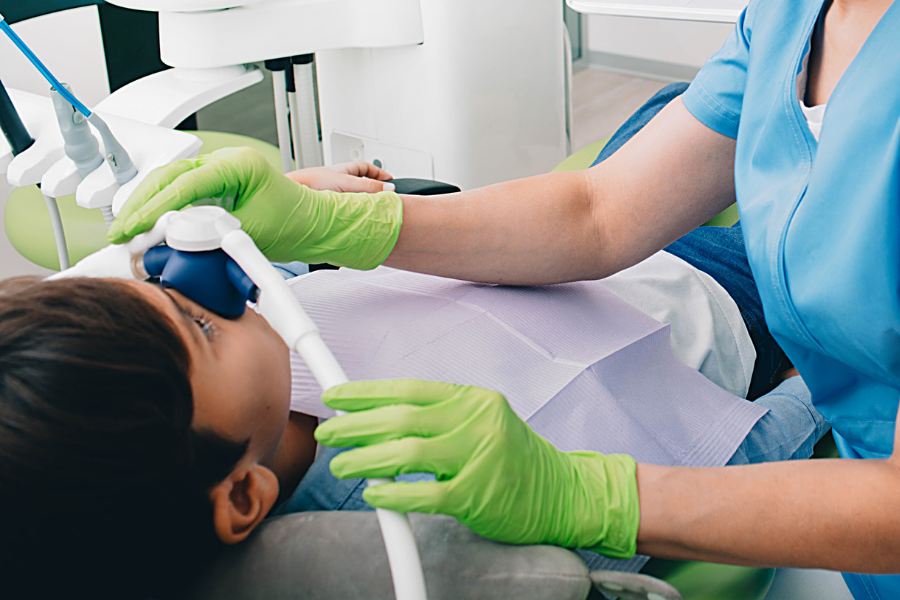
Park Ridge, Ill. (AANA) – Tooth decay is one of the most common chronic diseases in childhood. Untreated cavities can cause pain, infections, and can lead to problems eating, speaking, and learning. During February, National Children’s Dental Health Month, the American Association of Nurse Anesthesiology (AANA) reminds parents it is important not only to know how to keep your child’s teeth healthy, but also to ensure that they have access to safe dental care.
“A recent AANA Foundation study on public perceptions of anesthesia found that adults are more worried about their children receiving anesthesia than themselves. Although generally thought of for adult dental procedures, many children receive sedation and anesthesia, even for what would be considered routine dental care like cavity fillings, due to special needs, fear, anxiety, or procedural pain,” said AANA President Dina F. Velocci, DNP, CRNA, APRN. “Study respondents reported that an in-person discussion of the anesthesia delivery plan could reduce those concerns.”
Advanced practice registered nurses such as Certified Registered Nurse Anesthetists (CRNAs) are members of one of the most trusted professions, according to Gallup.
“Children who require sedation or anesthesia for dental procedures can count on a CRNA to stay with them throughout their procedure, advocate on their behalf, and provide high-quality, patient-centered care,” Velocci said. “In addition to teaching children good dental habits, parents and guardians should work with their child’s dental team to help ensure the delivery of sedation or anesthesia care is provided by a qualified, licensed anesthesia professional such as a CRNA.”
According to the Centers for Disease Control and Prevention (CDC), children who have poor oral health often miss more school and receive lower grades than children who don’t. Attitudes and habits established at an early age are critical in maintaining good oral health throughout life
Sedation for any dental procedure increases the complexity of care and emphasizes the importance that sedation and anesthesia are provided by an anesthesia professional, such as a CRNA, who is focused only on patient safety, monitoring, and vigilance.
CRNAs are highly educated, trained, and qualified anesthesia experts. They provide 50 million anesthetics per year in the United States, working in every setting in which anesthesia is delivered. They also deliver quality care to rural and other medically underserved areas, where they ensure access to anesthesia care to populations that would otherwise have to travel significant distances from their homes for treatment.